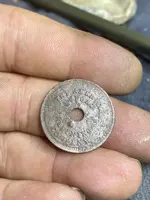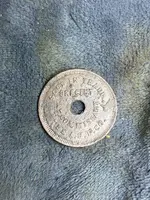Hi Truth.
The company has its origins in New York in 1799 when William Havemeyer, later joined by his brother Frederick, operated Mr. Seaman's refinery in Manhattan, NY. They opened their own refinery in 1807, operating as ‘Havemeyer, Townsend and Co.’ in Brooklyn. The company remained in the hands of the Havemeyer family and, in 1861, was renamed ‘Havemeyers and Elder’. Other refineries joined them and, in 1887, Henry O. Havemeyer organized the ‘Sugar Refineries Company’, consolidating nine local refineries and another eleven nationwide, the new company becoming known as the ‘Sugar Trust’.
They came under legal scrutiny for what was perceived as a near-monopoly, leading to the Havemeyers dissolving the company in 1891 and incorporating as the ‘American Sugar Refining Company’. They were bought by the E. C. Knight Company the following year, but continued to operate under the American Sugar Refining Company name. They withstood further legal challenges, the Supreme Court ultimately ruling in their favour that ‘refining’ was not an activity subject to congressional regulation of interstate commerce.
The Wiki page for the company suggests that they changed name to ‘Domino Sugar’ in 1900, but this is not correct. ‘Domino’ was one of their trademarks (probably the best known), registered in 1906 and the company itself continued to trade as the American Sugar Refining Company until 1970, when it became the ‘Amstar Corporation’.
These tokens are not well-documented, but appear to have been used at a number of their plants throughout the US with the same design. Yours will likely have seen use at their Chalmette refinery, located to the east of downtown New Orleans, which opened in 1909. Scrip tokens like this were progressively deemed ‘unconstitutional’ if non-transferable (not redeemable for cash) in the early-part of the twentieth century, but continued to exist in Kentucky and West Virginia until officially outlawed by Congress in 1967. Words such as “Good in Trade at Commissary” suggest the token was non-transferable and the issue of such tokens in lieu of wages became illegal under the Fair Labor Standards Act of 1938.





